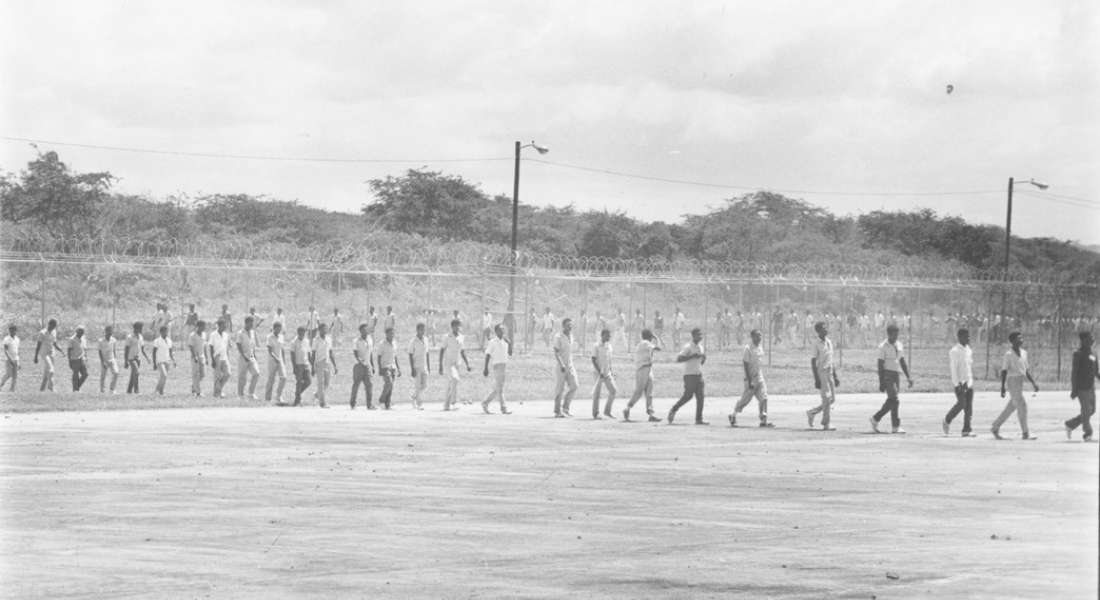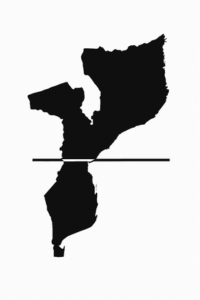Race and the Politics of Belonging

“Is It Because We Are Negroes?”: Haitian Refugees, Racialized Detention, and Anticolonialism in Puerto Rico, 1981-82
This talk takes as its starting point the question a group of Haitian women asylum seekers posed when detained in Puerto Rico in the early 1980s: “Is it because we are Negroes?” Their words not only expose the racialized underpinnings of U.S. refugee policy but also reveal the epistemic violence of an archive in which refugee voices appear only as fleeting ruptures. Drawing on my research into the short-lived refugee detention camp at Fort Allen, a U.S. military base in southern Puerto Rico, I reflect on how to study racialized detention when the sources themselves reproduce silences, biases, and colonial erasures, and what can be learned when Haitian refugee voices disrupt those silences. I situate Fort Allen at the hinge between Haiti – the first independent Black republic – and Puerto Rico – a continuing U.S. colony – to argue that offshore detention was not an aberration but a spatial expression of antiblackness within imperial migration governance. By excavating Fort Allen, I point to the archival challenges of writing such a history and the epistemological possibilities of centering refugee voices as anticolonial and antiracist critique.
Bio
 Fabio Santos is a Tenure-Track Assistant Professor in Histories of Migration at the Centre for Advanced Migration Studies, University of Copenhagen. He is the author of Bridging Fluid Borders: Entanglements in the French-Brazilian Borderland (Routledge, 2022). He received his PhD in 2019 from the German-Mexican graduate school Entre Espacios, awarded by Freie Universität Berlin. He has previously held academic appointments at Freie Universität Berlin, the University of Vienna, Aarhus University, and UC Berkeley. The recurring themes of his teaching and writing – migration, inequality, and colonialism – are explored through ethnographic and archival methods.
Fabio Santos is a Tenure-Track Assistant Professor in Histories of Migration at the Centre for Advanced Migration Studies, University of Copenhagen. He is the author of Bridging Fluid Borders: Entanglements in the French-Brazilian Borderland (Routledge, 2022). He received his PhD in 2019 from the German-Mexican graduate school Entre Espacios, awarded by Freie Universität Berlin. He has previously held academic appointments at Freie Universität Berlin, the University of Vienna, Aarhus University, and UC Berkeley. The recurring themes of his teaching and writing – migration, inequality, and colonialism – are explored through ethnographic and archival methods.
The thin white line
 This talk, which marks a new departure in my research on Mozambique, focuses on white minority Mozambicans living in the capital, Maputo. Descendants of Portuguese settlers that stayed in the country after independence in 1975, the group has remained an integral part of the nation’s political and economic elite, despite being excluded, in practice, from assuming positions of public responsibility. While white Mozambicans feel at times unrecognised as national citizens, they also strive to maintain their distinctiveness, keeping their group closed and highly interconnected by making other white Mozambicans their preferred business, marriage and friendship partners. Their social position is thus marked by a stubborn insistence on their national belonging and their identity as Mozambicans, and simultaneously, a daily performance of European whiteness that grants them a position of moral superiority vis-à-vis of their black compatriots.
This talk, which marks a new departure in my research on Mozambique, focuses on white minority Mozambicans living in the capital, Maputo. Descendants of Portuguese settlers that stayed in the country after independence in 1975, the group has remained an integral part of the nation’s political and economic elite, despite being excluded, in practice, from assuming positions of public responsibility. While white Mozambicans feel at times unrecognised as national citizens, they also strive to maintain their distinctiveness, keeping their group closed and highly interconnected by making other white Mozambicans their preferred business, marriage and friendship partners. Their social position is thus marked by a stubborn insistence on their national belonging and their identity as Mozambicans, and simultaneously, a daily performance of European whiteness that grants them a position of moral superiority vis-à-vis of their black compatriots.
Bio
 Flora Botelho is a social anthropologist with a masters from the University of Copenhagen and a PhD from Aarhus University. I have worked with ethnic minorities, national and ethnic identities, as well as childhood and creativity, both in Brazil and in Denmark. My PhD research explored the everyday lives of young women in Maputo, Mozambique, and addressed the intrinsic inequality of interpersonal relationships. Inequality has remained a central element of my work, both in my postdoctoral research on the negotiation of egalitarian values provoked by transnational migration into Europe, and in my current research into the production of racial categories in Mozambican medical discourse and practice – as part of the project Skin Health: Biocultural zones of contact, hosted at CoRe.
Flora Botelho is a social anthropologist with a masters from the University of Copenhagen and a PhD from Aarhus University. I have worked with ethnic minorities, national and ethnic identities, as well as childhood and creativity, both in Brazil and in Denmark. My PhD research explored the everyday lives of young women in Maputo, Mozambique, and addressed the intrinsic inequality of interpersonal relationships. Inequality has remained a central element of my work, both in my postdoctoral research on the negotiation of egalitarian values provoked by transnational migration into Europe, and in my current research into the production of racial categories in Mozambican medical discourse and practice – as part of the project Skin Health: Biocultural zones of contact, hosted at CoRe.
For questions contact Daniel Steinbach and Jessica Hanser.
Map of South Campus
View directions.
View on map of the Faculty of Humanities - South Campus.
View map of South Campus (pdf).
